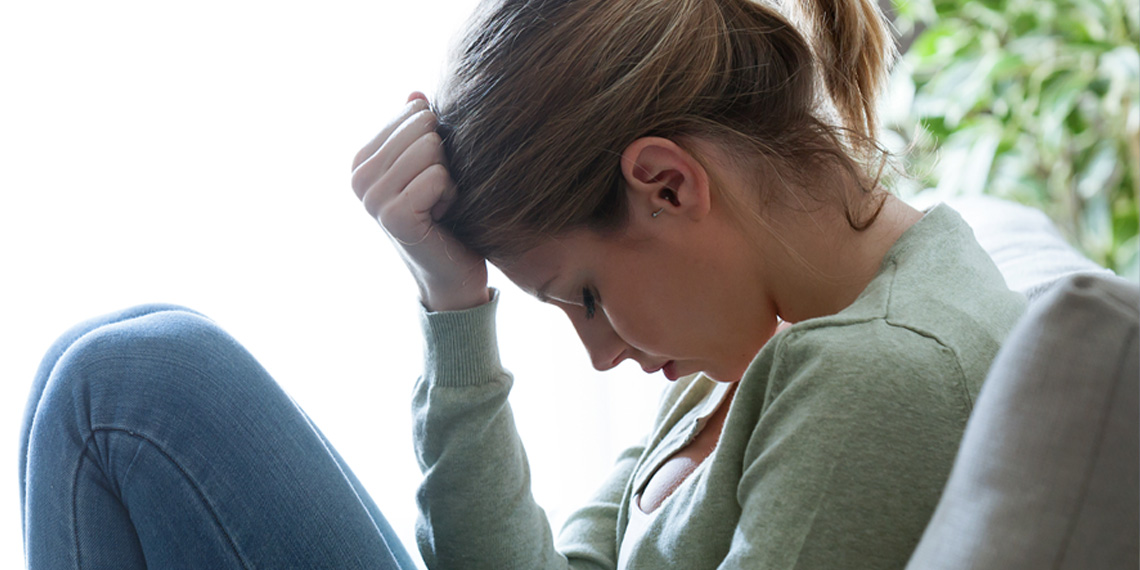A study published in Frontiers in Psychiatry has found new evidence that spending too much time sitting can have a negative impact on mental health. The study found that while mental health tended to improve among US residents after the initial COVID-19 outbreak, those who spent more time sitting showed slower recovery from depressive symptoms.
Throughout the COVID-19 crisis, mental health professionals have expressed concern about the psychological health of citizens. One way the crisis could affect mental health is by increasing sedentary behavior, with citizens spending much more time at home in an effort to follow public health guidelines.
In particular, the first wave of the coronavirus was unexpected and required rapid changes in people’s behavior. Researchers Jacob D. Meyer and colleagues recognized the opportunity to explore how sudden changes in sedentary behavior over a short period of time would affect mental health. The researchers used a longitudinal research design that involved repeated measurements over an 8-week period during the pandemic. This allowed them to assess how changes in sitting behavior would relate to changes in mental health over time.
US residents completed an initial survey in April 2020, shortly after a state of emergency was declared in the United States due to COVID-19. Respondents were then invited to participate in eight follow-up surveys one week apart. In total, 2,327 participants between the ages of 18 and 74 completed at least two surveys and were included in the analysis. Three separate questions asked respondents how many minutes a day they typically spend in front of a screen, sitting, and doing moderate or vigorous exercise. Respondents also completed measures of anxiety symptoms, depressive symptoms, and positive mental health.
The results revealed that participants’ mental health tended to improve over time, suggesting that their initial reactions to the pandemic faded as public health measures were put in place and people adjusted to the “new normal.” However, the time spent sitting seemed to make it harder for depressive symptoms to improve.
By week four, participants who scored in the top 10% in sitting time had significantly higher depression scores than those who scored in the bottom 10% in sitting time. By week eight, this difference grew so that those who sat more were even further behind those who sat less in terms of improvement in depressive symptoms. “High levels of sitting time may have limited improvement in depressive symptoms that occurred over time,” the study authors say, “and prolonged sitting time may be a key behavioral risk factor for long-lasting depressive symptoms.” “.
At baseline, those with the highest levels of screen time had significantly higher depression scores compared to those with the lowest levels of screen time, but these differences disappeared by week 3. No physical activity was found to affect depressive symptoms, anxiety, or positive mindset. health either initially or over time. The researchers note that the number of inactive participants was low, which may have limited the statistical power to detect differences.
Previous studies suggest that depression increased during the pandemic, and Meyer and her team say their study suggests that spending too much time sitting blunted recovery from these heightened depressive symptoms. They say it will be important for future studies to examine the relationship between sitting behavior and mental health over the long term, to see if the relationship weakens or strengthens over time. Strategies to limit the adverse impact of sitting on depression may be to reduce total time spent sitting or to break up sitting time with other activities.
The study, “Prolonged sitting is a behavioral risk factor for attenuated improvement in depression through 8 weeks of the COVID-19 pandemic in April-May 2020”, was written by Jacob D. Meyer, John O’Connor, Cillian P. McDowell, Jeni E. Lansing, Cassandra S. Brower, and Matthew P. Herring.
var aepc_pixel = {“pixel_id”:”1519577708343255″,”user”:{},”enable_advanced_events”:”yes”,”fire_delay”:”0″,”can_use_sku”:”yes”},
aepc_pixel_args = [],
aepc_extend_args = function( args ) {
if ( typeof args === ‘undefined’ ) {
args = {};
}
for(var key in aepc_pixel_args)
args[key] = aepc_pixel_args[key];
return args;
};
// Extend args
if ( ‘yes’ === aepc_pixel.enable_advanced_events ) {
aepc_pixel_args.userAgent = navigator.userAgent;
aepc_pixel_args.language = navigator.language;
if ( document.referrer.indexOf( document.domain ) < 0 ) {
aepc_pixel_args.referrer = document.referrer;
}
}
!function(f,b,e,v,n,t,s){if(f.fbq)return;n=f.fbq=function(){n.callMethod?
n.callMethod.apply(n,arguments):n.queue.push(arguments)};if(!f._fbq)f._fbq=n;
n.push=n;n.loaded=!0;n.version='2.0';n.agent="dvpixelcaffeinewordpress";n.queue=[];t=b.createElement(e);t.async=!0;
t.src=v;s=b.getElementsByTagName(e)[0];s.parentNode.insertBefore(t,s)}(window,
document,'script','https://connect.facebook.net/en_US/fbevents.js');
fbq('init', aepc_pixel.pixel_id, aepc_pixel.user);
setTimeout( function() {
fbq('track', "PageView", aepc_pixel_args);
}, aepc_pixel.fire_delay * 1000 );
